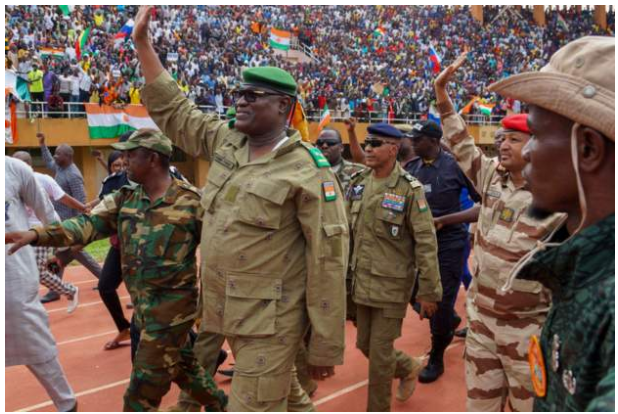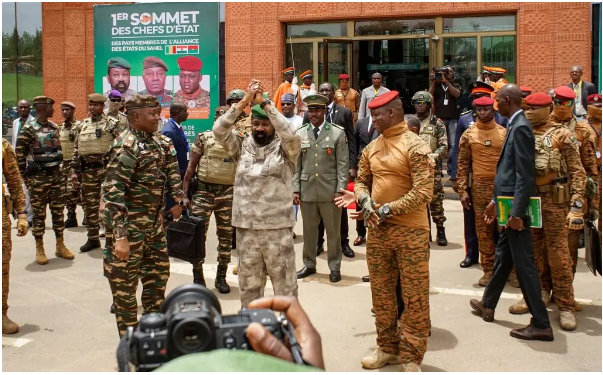 Russia has entered into a satellite technology agreement with several West African military-led governments, strengthening its influence in the region and signaling a new era of cooperation in space and defense technology. The deal, announced this week, marks a significant step in Russia’s ongoing efforts to expand its geopolitical reach in Africa amid increasing global competition for influence on the continent.
Russia has entered into a satellite technology agreement with several West African military-led governments, strengthening its influence in the region and signaling a new era of cooperation in space and defense technology. The deal, announced this week, marks a significant step in Russia’s ongoing efforts to expand its geopolitical reach in Africa amid increasing global competition for influence on the continent.
Under the terms of the agreement, Russia will provide satellite infrastructure and technology to assist West African countries in areas such as communications, border security, and environmental monitoring. This collaboration comes as these nations seek to bolster their defense and surveillance capabilities, following a series of military coups in the region.
The governments involved in the deal, which include Mali and Burkina Faso, have faced international scrutiny due to their recent political upheavals. However, they have turned to Russia as a key partner in navigating their current security and developmental challenges. The satellite deal is expected to enhance the region’s ability to manage internal security threats, particularly from militant groups operating in the Sahel region.
Russia’s involvement in West Africa is part of a broader strategy to increase its influence across the continent, leveraging technology, military assistance, and infrastructure investments. By offering satellite technology, Moscow hopes to fill a void left by traditional Western powers, who have imposed sanctions or limited cooperation with military governments in the region.
Russian Foreign Minister Sergey Lavrov welcomed the agreement, calling it a mutually beneficial partnership that will aid in the development of critical infrastructure and defense systems for the West African nations involved. The deal is also expected to provide Russia with valuable economic and political leverage as it seeks to deepen ties with Africa.
Critics, however, have raised concerns about the long-term implications of such partnerships, particularly in the context of authoritarian regimes that have taken power in these countries. Western governments, already wary of Russia’s growing presence in Africa, are likely to watch these developments closely, particularly in light of Russia’s broader geopolitical strategies.
 The satellite deal aligns with Russia’s broader goals of increasing its foothold in Africa through military cooperation, economic investments, and political alliances. This move also follows Russia’s growing influence in nations like the Central African Republic, where it has provided security support in exchange for economic and strategic benefits.
The satellite deal aligns with Russia’s broader goals of increasing its foothold in Africa through military cooperation, economic investments, and political alliances. This move also follows Russia’s growing influence in nations like the Central African Republic, where it has provided security support in exchange for economic and strategic benefits.
As satellite technology becomes increasingly vital for modern governance, defense, and infrastructure, this agreement could mark a significant shift in how West African military governments manage security, border control, and development projects. It also highlights the broader geopolitical competition playing out in Africa, as global powers vie for partnerships and influence across the continent.
Russia’s move into West African satellite infrastructure may serve as a blueprint for future cooperation with other African nations, particularly those seeking alternatives to Western support. For the West African governments involved, the partnership offers a crucial opportunity to strengthen their governance capabilities while cementing closer ties with a major global power.
Ennywealth


